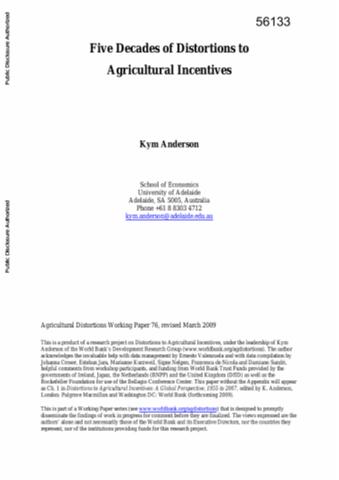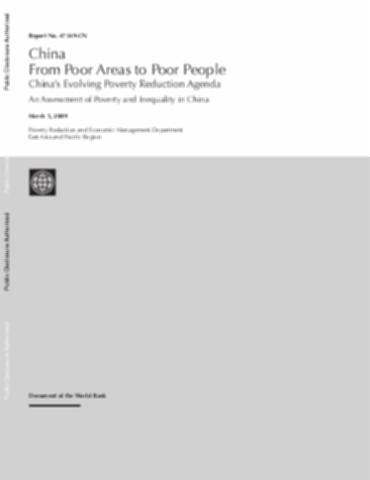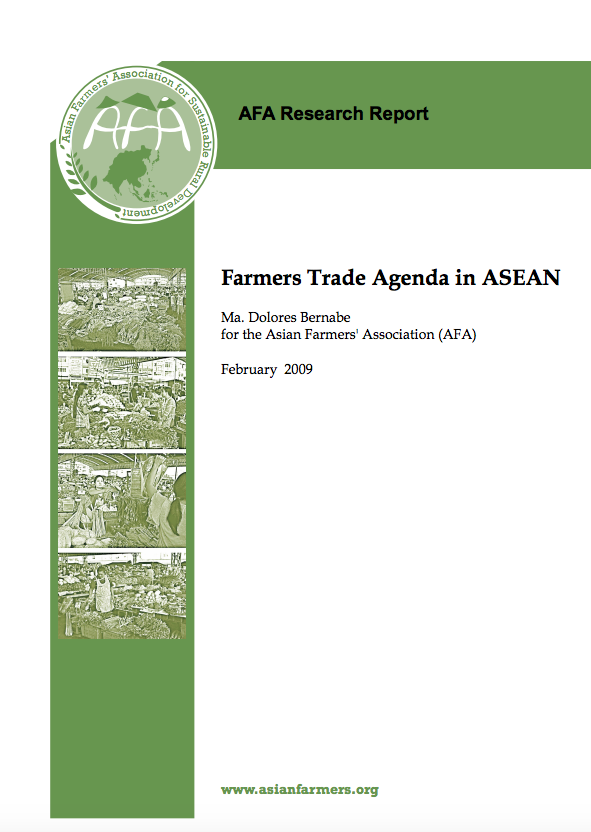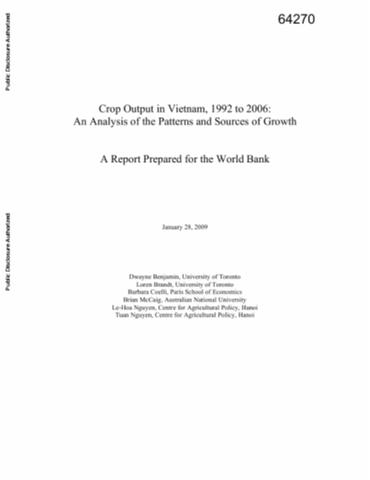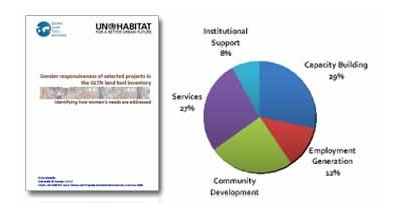Five Decades of Distortions to Agricultural Incentives
This chapter begins with a brief summary of the long history of national distortions to agricultural markets. It then outlines the methodology used to generate annual indicators of the extent of government interventions in markets, details of which are provided in Anderson and appendix A.

